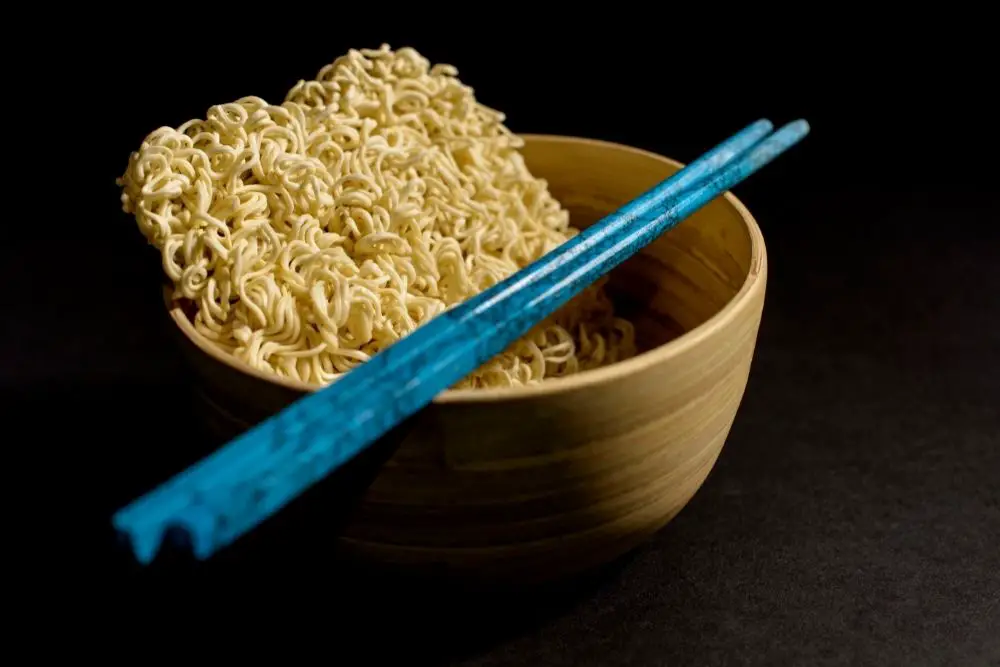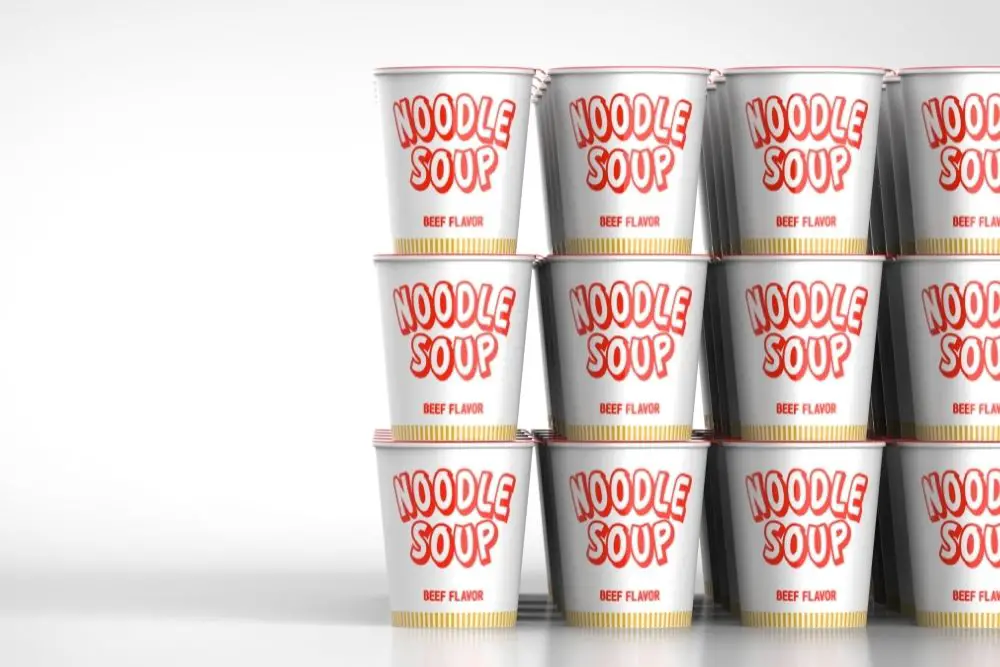Ramen noodles are one of those meals known for being super easy and quick to make, all you need is some boiling water and they’re done! Plus, ramen noodles are also super cheap, so there’s a reason why they are famously known as the student food of excellence.
On top of this, ramen noodles last a pretty long time. It’s not uncommon for people to bulk buy them, and simply have them in the pantry for when they are needed, or you don’t feel like cooking a proper meal.
But…how long do ramen noodles last? They all come with an expiry date on the package, so they don’t last forever. But would it be that bad to eat some expired noodles? How can you tell if they’re okay to eat?
We can answer all of these questions and more, by telling you everything you need to know about the shelf life of ramen noodles. Let’s get right into it!
The Shelf Life Of Ramen Noodles
On average, ramen noodles will have a shelf life of a couple of years, usually between two to five, but it of course depends on the type of ramen noodles and the brand that you are buying.
However, all ramen noodle packs will come with a printed expiry date, by which you are supposed to have consumed them. But here’s a little secret, you can actually eat ramen noodles up to a year after the expiry date that is indicated on their packaging because the expiry date is very much exaggerated!
That being said, don’t automatically assume that ramen noodles are okay to eat. Always double-check them, and make sure that they have been stored properly!
Can You Eat Expired Ramen Noodles?

We’ve already said that you will be totally okay if you eat ramen noodles up to a year after the expiry date printed on their packaging, but that’s because they aren’t really expired by the date stated.
What about proper expired ramen noodles, like a good few years after the date indicated. Can you eat them? It kind of depends on the type of ramen noodles.
Usually, noodles come in one of two common forms: as a block with a separate packet of flavoring, or in a Styrofoam cup with the flavoring already mixed in with them.
If you’re dealing with a Styrofoam cup of noodles that already has other ingredients and flavoring mixed in with them, then you should probably avoid eating them when expired, because they might not be safe.
Mainly due to the flavoring and added ingredients, which can go bad a lot easier, becoming unsafe.
If you’re dealing with a block of ramen noodles, in which the flavoring comes as a separate packaging, then they will be okay to consume for a lot longer, even after the expiry date! This is because, usually, noodles are just flour, vegetable oil, and preservatives.
The lack of moisture makes it really hard for any bacteria to get in and infect them, so it’s actually really hard for them to go bad! That being said, always double-check the ramen noodles before consuming them!
Why Do Ramen Noodles Expire?
If it’s really hard for ramen noodles to go bad, then why do they have an expiry date? This is a pretty valid question, but there’s an answer.
The oil that is used in ramen noodles eventually goes bad, and becomes rancid, meaning the taste would be absolutely ruined, and you might also end up with some diarrhea and a mild case of food poisoning.
The same goes for any added ingredients or flavoring featured in the ramen noodles, as these will go off quite easily, and the expiration date is mainly thought around these.
Also, if ramen noodles become exposed to moisture, they will very quickly go bad. This is why they are packaged very carefully, and if stored correctly, they will last a long time.
But if the packaging becomes damaged, or they are exposed to water or moisture…you either eat them soon or they’re going to be thrown in the bin.
How To Tell If Ramen Noodles Are Okay To Eat
Okay, so ramen noodles do expire, but it’s hard for them to expire, meaning you can often eat them after the expiry date, but you have to be careful. It’s a little confusing. How exactly do you make sure the ramen noodles are okay to be eaten?
First of all, look for the expiry date. If it hasn’t gone past, then it is almost certain that the ramen noodles are okay to eat, unless they have been stored in completely the wrong way, of course.
If the expiry date has already gone past, then you are going to have to double-check them to determine whether it is okay to eat them or not. And to do so, we recommend doing the following:
Inspect the outer packaging. If there are any holes, tears, or damage, then the ramen noodles will have been exposed to moisture, and will not be okay, therefore you should throw them away. If the packaging is intact, keep on checking them in other ways.
Look at the ramen noodles carefully. If there are any signs of mold or insects, instantly throw them away because they will give you food poisoning. If not, you’re one step closer to being able to eat them.
Take a sniff of the ramen noodles and the seasoning that comes with them. If they smell okay, you’re good. If they smell rancid or weird in any way, throw them out.
Finally, taste a small bit of the ramen noodles (after you have cooked them). If they taste weird, throw the rest out. If they taste okay, then enjoy your meal!
How To Properly Store Ramen Noodles

Ramen noodles should be stored in a dark, cool, dry place. A cupboard or pantry will usually be the ideal location for them. The most important thing is to keep them away from any moisture and to make sure that bugs can’t get to them.
Are Ramen Noodles Good For Survival?
When people are prepping for survival, they often buy a big amount of ramen noodles, to keep stored in the house. So initially, they seem like great food for survival. And the truth is, they are very cheap, very easy to store, and incredibly easy to make, meaning it’s easy food.
But here is the thing. Ramen noodles don’t last that long, and you have to replace them every few years, so if you haven’t used them, that becomes a waste of money. And also, they’re not that good as a source of nutrients, and not that filling.
A better alternative to ramen noodles would be to stock up on rice, pasta, beans, and similar foods. These have a longer shelf life, are more valuable in the nutrients they provide and are a lot more filling!
Final Thoughts
Ramen noodles have a shelf life of a few years, and they will always come with a clear expiry date. As a general rule, as long as they have been properly stored, you can still eat the noodles a year after the expiry date, but you should double-check them to make sure they are okay.